Dados 4 Oeiras Valley
Integrated in the concept of smart city, the Municipality of Oeiras, intends to implement a descriptive, predictive, and prescriptive action strategy, which can substantiate decision-making in analytical evidence, duly updated, that corresponds to the constant challenge, as a model capable of creating an enabling environment for effective and efficient governance; that promotes the active participation of citizens; that achieves sustainable urban development with economic, social and environmental benefits. Data 4 Oeiras Valley” consists of an integrated analytical intervention, in priority thematic areas, such as: mobility; economy; governance; education and participation and citizenship, which meets the local ambition, the apprehension of a “future vision of a highly qualified territory, intensely attractive for universities and companies” (Dr. Isaltino Morais), for those who live, study and work, actively participating in its composition.
Strategic Vision – Develop an integrated strategy in order to provide the Municipality of Oeiras with instruments that allow an intelligent management of the territory. A Smart City instruments to support sustainable development.
General objective – To reinforce the municipality’s position, as a symbol of a highly qualified territory, with a dynamic economy, based on knowledge and technology as bases for the creation of value, as well as the bases for a more sustainable territory.
Axes of intervention:
- Mobility – New mobility and traffic management models, and behavioral transformation (smooth modes)
- Economy – Knowledge of the geographic economic territory (TEG);
- Environment – Energy efficiency;
- Governance – Immediate Resolution of Occurrences;
- Citizenship and Participation – Active Citizenship
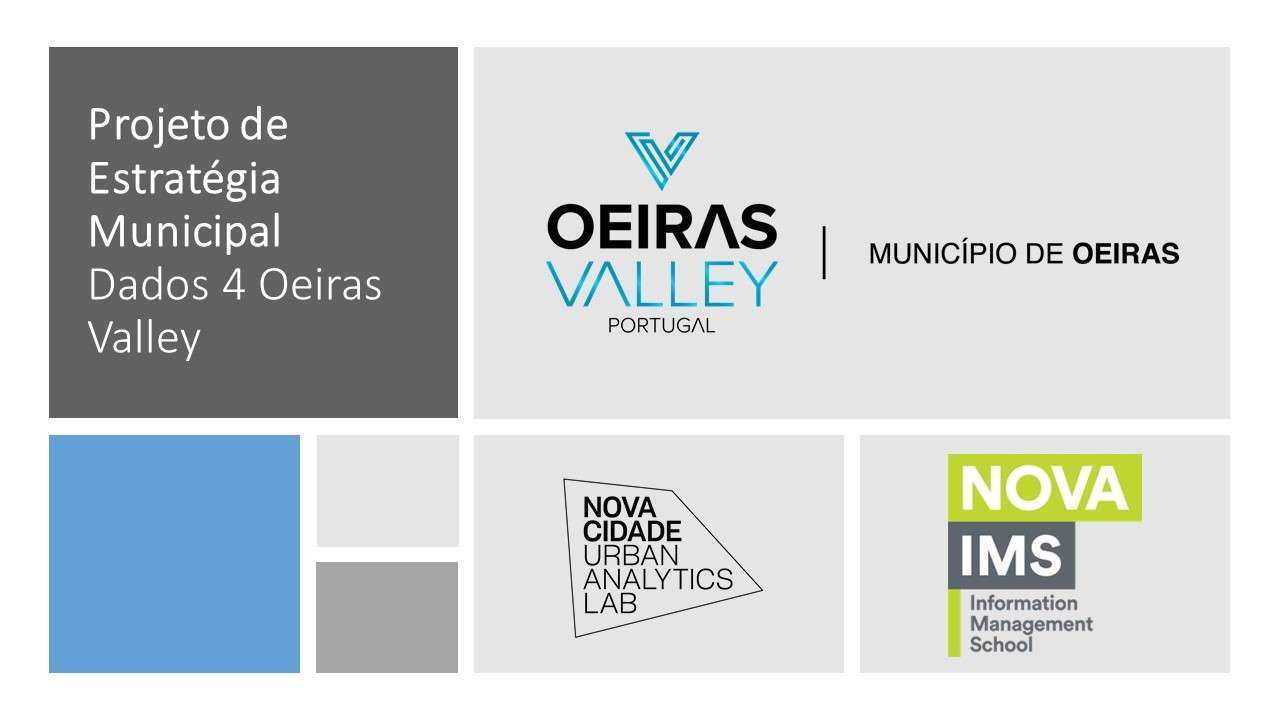
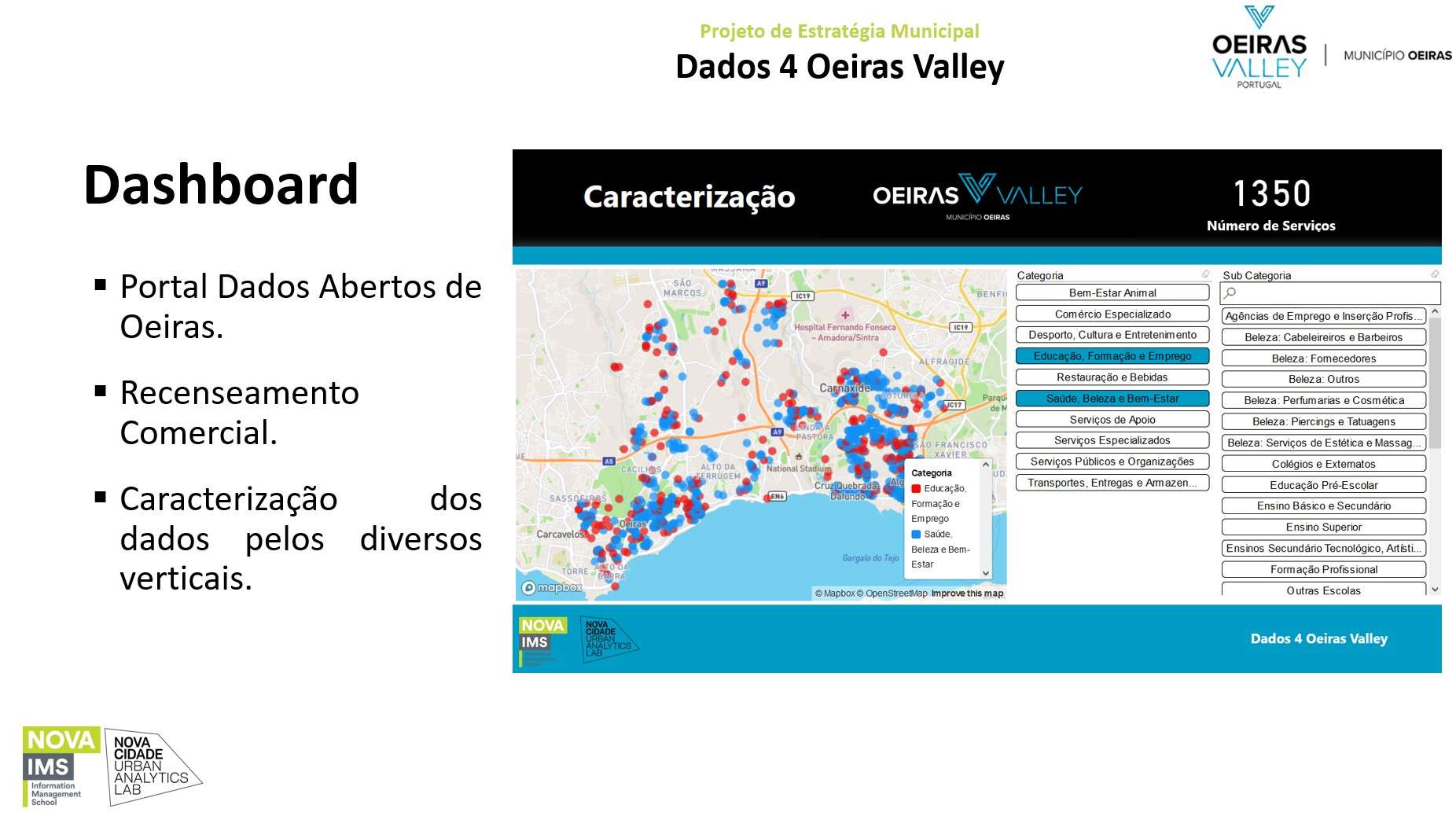
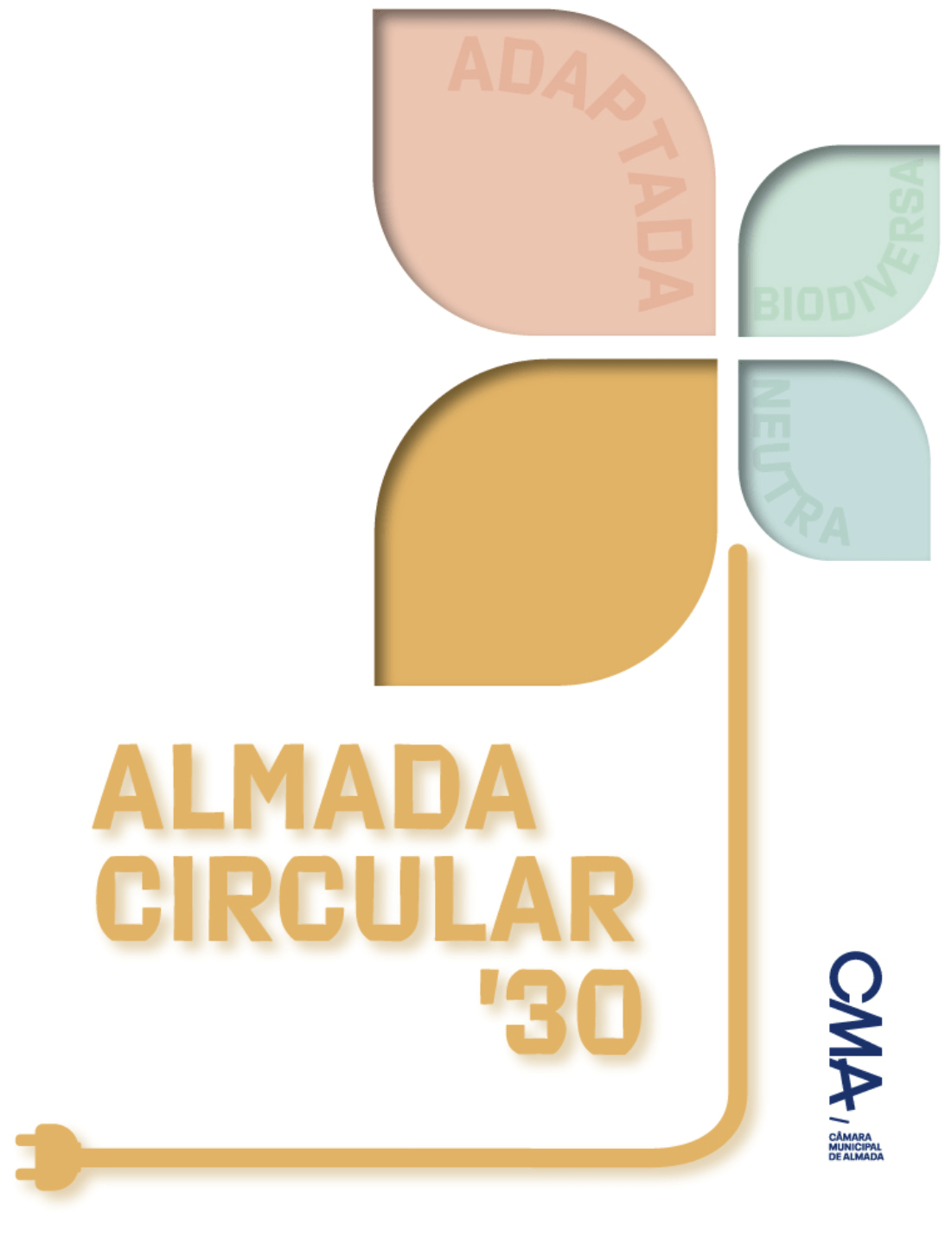
Estratégia Almada Circular e Inteligente 2030
The project aims to build the foundations to transform Almada into a circular city in 2030, adding intelligence and sustainability, and simultaneously accelerating its decarbonization process. Define the vision of Almada Circular, in 2030, and identify, explore and enhance the strategic and unavoidable role of the Municipality of Almada in the process of transition to that future, capitalizing on:
- the proximity between the Executive (and its services) and the daily needs and concerns of citizens and companies/organizations based in the municipality;
- the management tools that the Chamber has at its disposal (e.g. regulations, fees, public procurement, urban planning, asset management, mobility management, waste and wastewater management, access to innovation financing mechanisms, education);
- Almada’s relationship with neighboring municipalities, as part of the Lisbon metropolitan area and agent of the transition model advocated in Regional Agenda 2.0 for the Circular Economy in the LVT region (CCDR LVT, 2019); and
- the ability to mobilize and involve stakeholders (local, regional and national).
The (r)evolution towards a circular model will allow Almada to gain competitiveness in the medium and long term, increasing its attractiveness and capacity to retain people, businesses and a diversified economic activity with added value.
ACP Mobilidade 4.0
Taking into account the structuring role of mobility in the construction of smart and sustainable cities, able to ensure quality of life and well-being to people and promote economic development, in parallel with the imperative to meet the assumed decarbonization goals, where transport in Lisbon represents 50% of emissions, it is important to adopt a culture of planning and management based on fact and able to induce a new paradigm of data-driven public policies.
In this sense and following the study previously conducted on the impact of bicycle paths on mobility, which was strongly impacted by the pandemic and its impact on the metabolism of the city, it is important to update and deepen the knowledge on this subject.
For this purpose we propose to update the study now that we have started to resume the pre-COVID patterns, including also the exploration of new data sources available in the meantime and that allowed us to build a richer analysis framework capable of generating new insights and contributing significantly to better decisions on the future of mobility in the city of Lisbon.
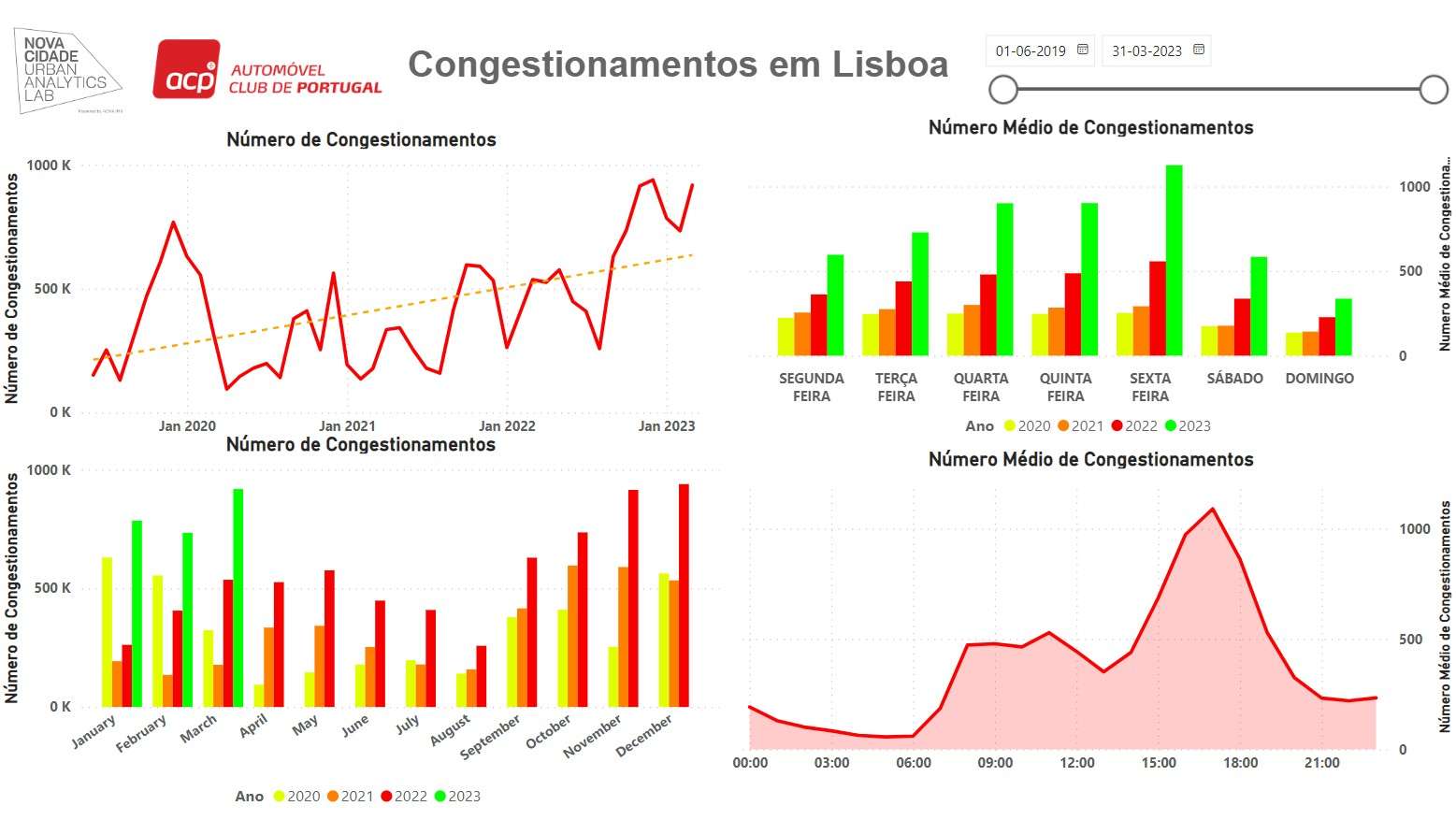
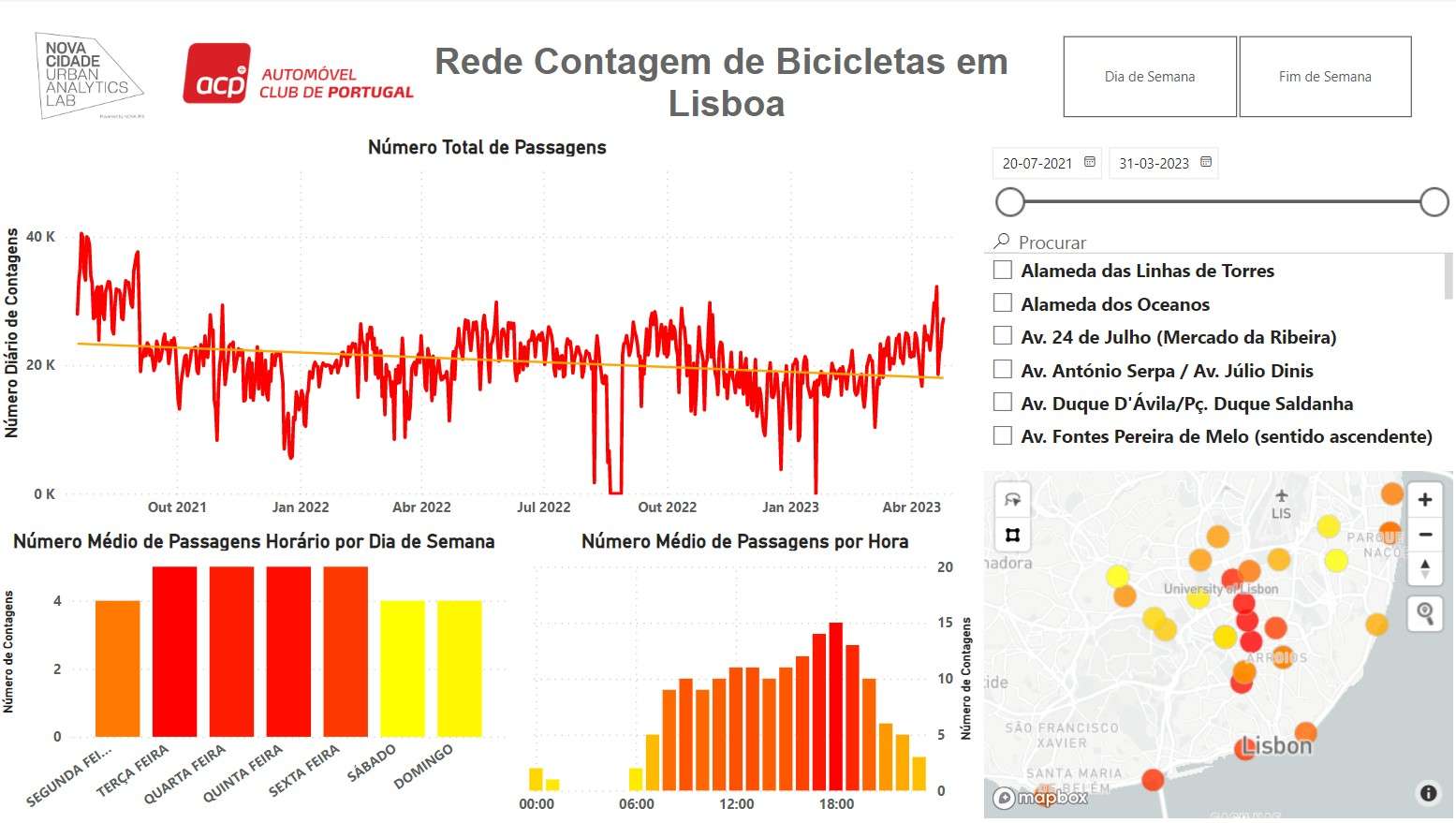
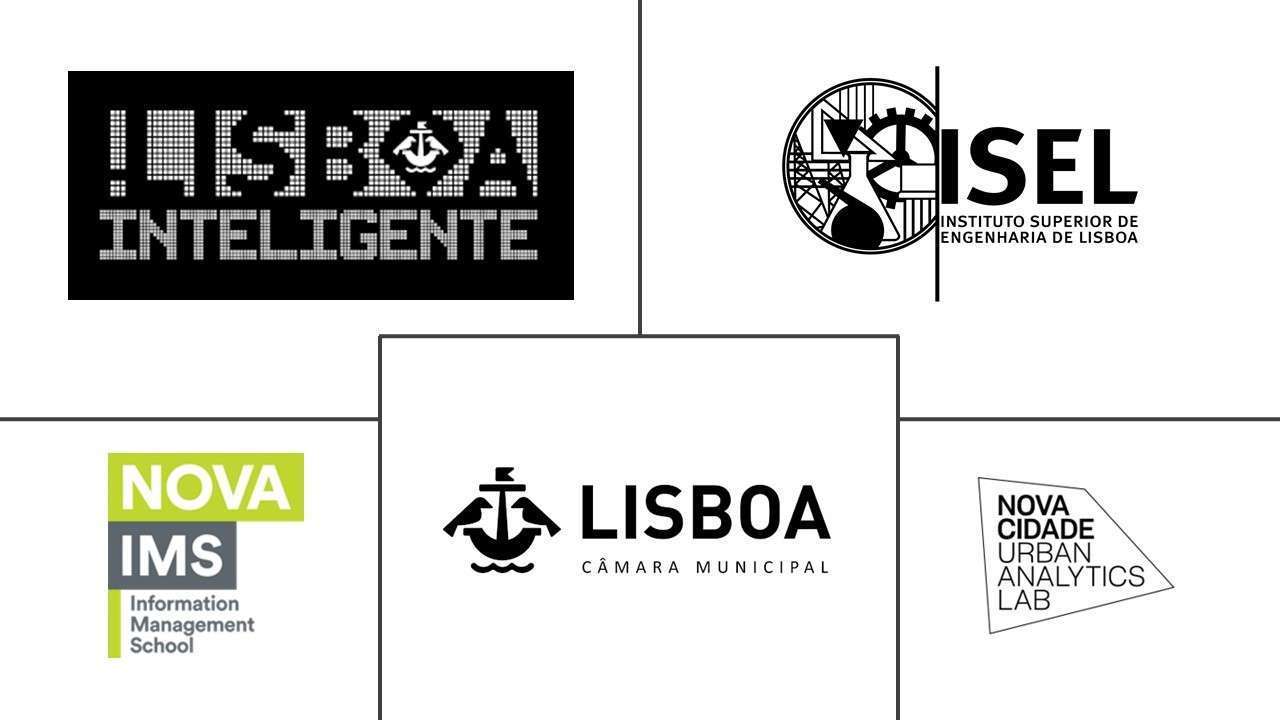
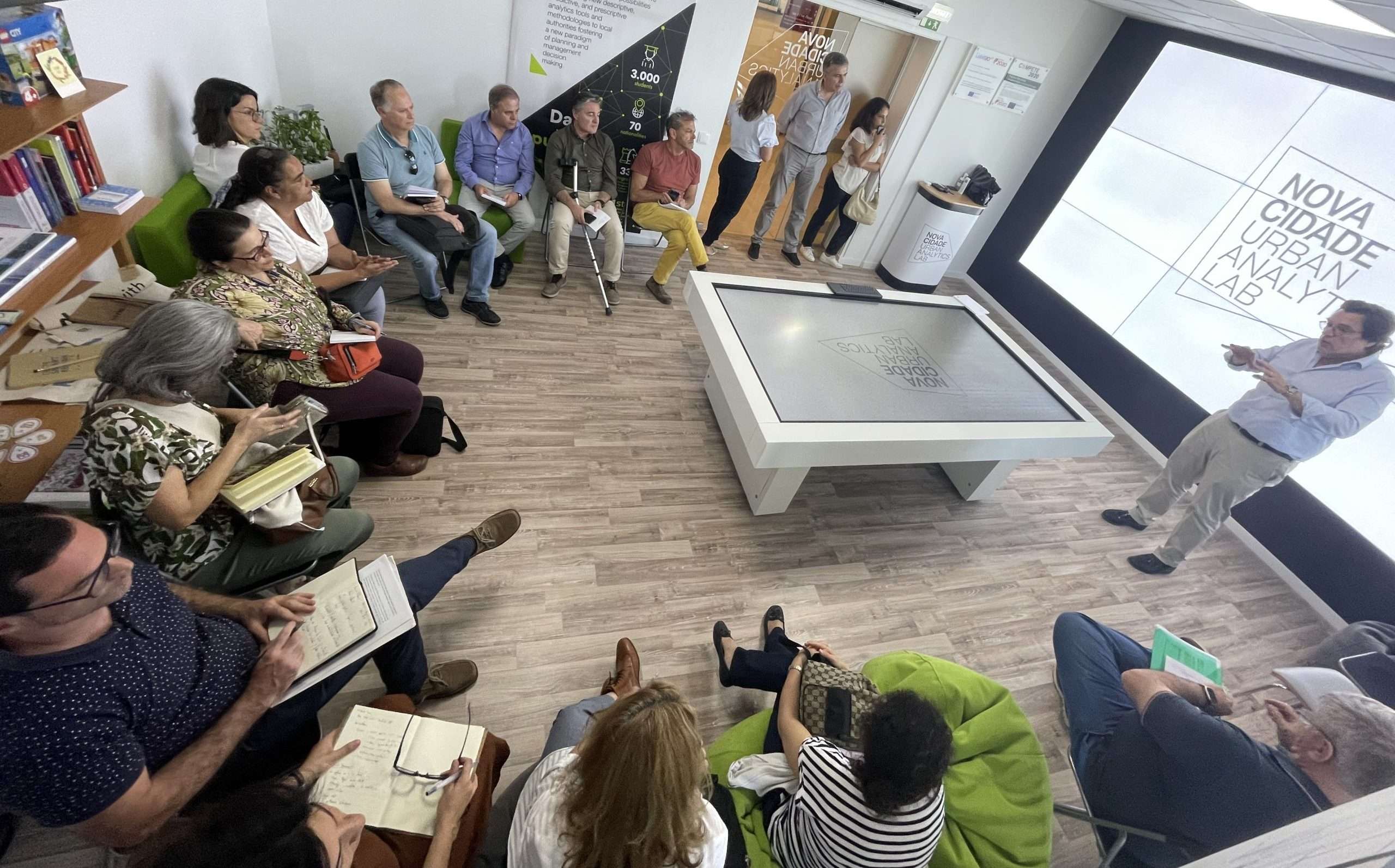
Dados ao Serviço de Lisboa
The Municipality of Lisbon, ISEL and NOVA IMS intend to cooperate mutually with a view to the implementation, development and promotion of a partnership called “Dados ao Serviço de Lisboa”, which aims to join interests, where the Municipality of Lisbon makes available the infrastructures to support information and communication, as well as the data to improve their management practices, ISEL and NOVA IMS investigate and teach the best methodologies in the processes of design and maintenance of networks and information, communication and management systems. data, data exploration and knowledge discovery in a vision of the city as a platform in a real context, such as the city of Lisbon.
The main activities to be developed under this partnership are as follows:
- Data Incubator
- data factory
- data analytics
- Smart Lisbon Observatory
- Training and dissemination
City Catalyst- Catalyst for sustainable cities
The project aims to develop solutions for the urban ecosystem, seeking to improve the quality of life of citizens in the urban environment, making cities more intelligent and sustainable, in the areas of infrastructure, privacy, security, mobility, governance and energy.
The project aims to investigate, develop and validate, in a real context, a set of technological solutions and innovative services that enhance an integrated, more efficient and effective urban management, and catalyst for innovation and sustainable development through specific contributions to implementation and interoperability urban platforms.
The consortium responsible for implementing the activities comprises 11 companies, namely: EFACEC ENERGIA – MÁQUINAS E EQUIPAMENTOS ELÉCTRICOS S.A, EFACEC ENGENHARIA E SISTEMAS, S.A., EFACEC ELECTRIC MOBILITY, S.A., ALTICE LABS, S.A., PROEF EURICO FERREIRA PORTUGAL, S.A., INOVA+ – INNOVATION SERVICES, S.A., UBIWHERE LDA, HLTSYS – HEALTHYSYSTEMS, LDA , ADYTA, L.da, JSCRAMBLER, S.A., NOS COMUNICAÇÕES, S.A., e por 11 entidades não empresariais, designadamente: ASSOCIAÇÃO PORTO DIGITAL, ASSOCIAÇÃO PORTO BUSINESS SCHOOL (PBS) – U.PORTO, CEIIA – CENTRO DE ENGENHARIA E DESENVOLVIMENTO (ASSOCIAÇÃO), ASSOCIAÇÃO FRAUNHOFER PORTUGAL RESEARCH, UNIVERSIDADE NOVA DE LISBOA, ASSOCIAÇÃO C.C.G. / ZGDV – CENTRO DE COMPUTAÇÃO GRÁFICA, INSTITUTO DE TELECOMUNICAÇÕES, UNIVERSIDADE DO PORTO – C3P, INESC TEC – INSTITUTO DE ENGENHARIA DE SISTEMAS E COMPUTADORES, TECNOLOGIA E CIÊNCIA, ASSOCIAÇÃO PARA O PÓLO DAS TECNOLOGIAS DE INFORMAÇÃO, COMUNICAÇÃO E ELECTRÓNICA – TICE.PT, UNIVERSIDADE DO PORTO – FEUP.



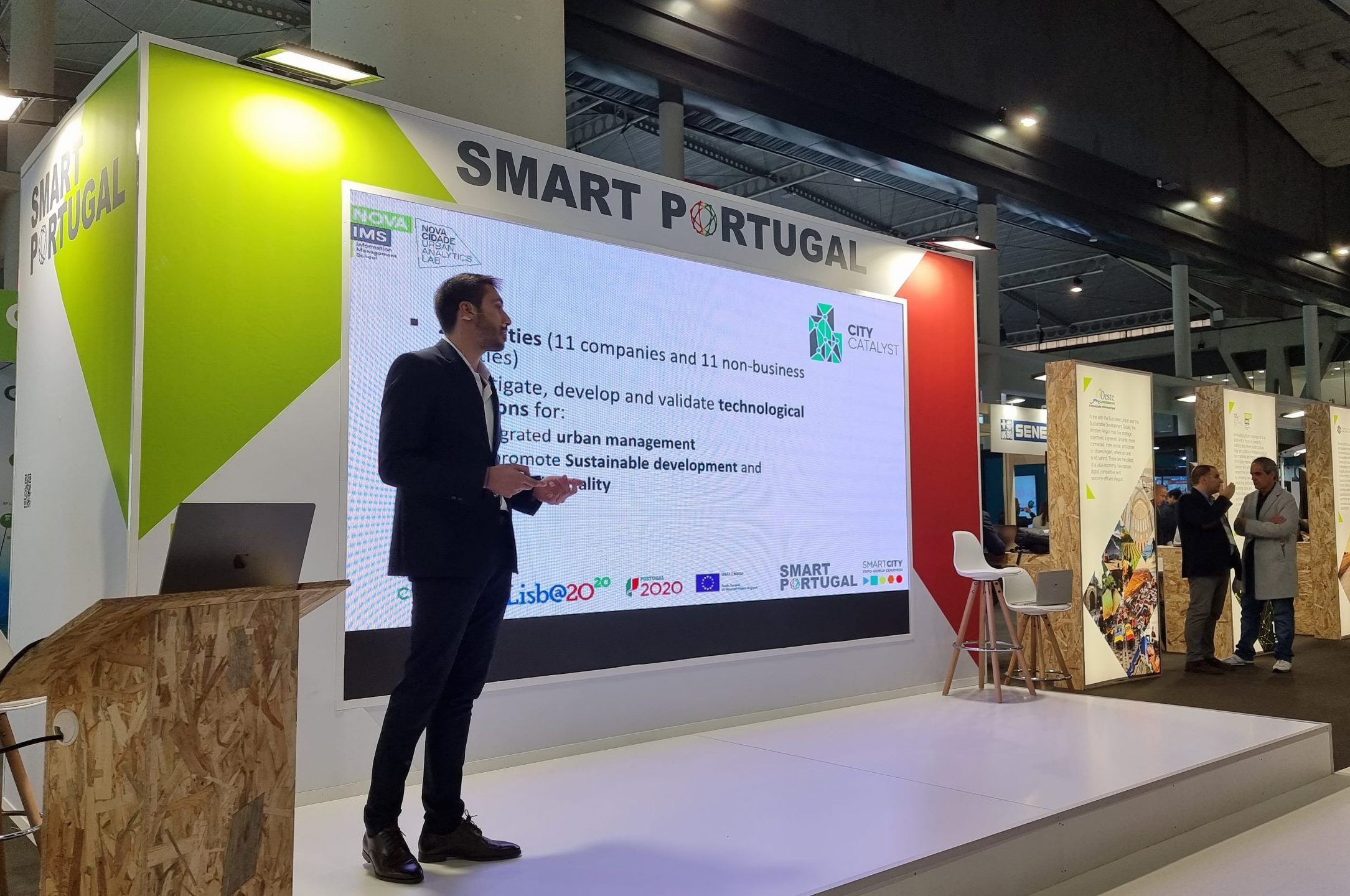
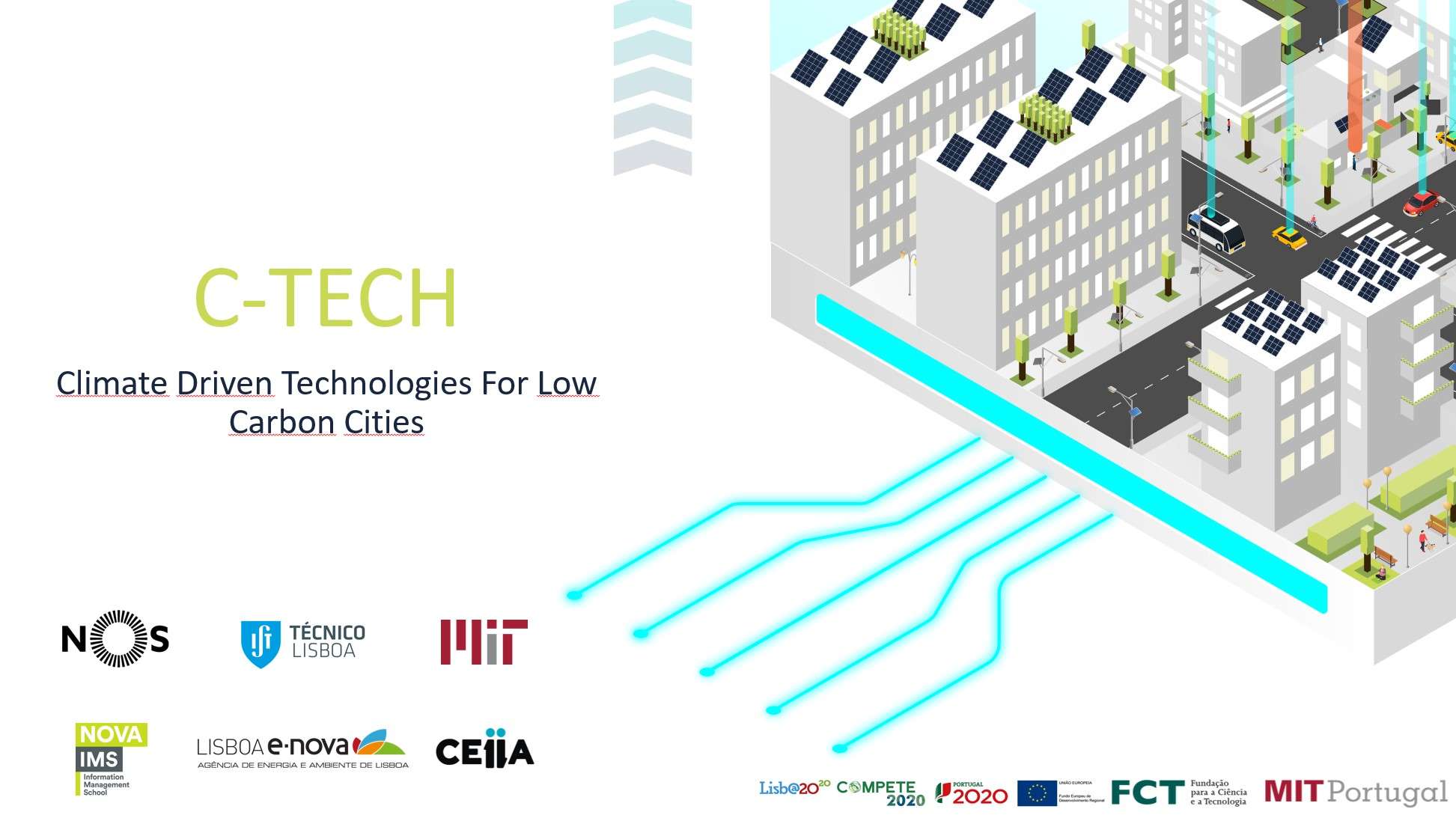
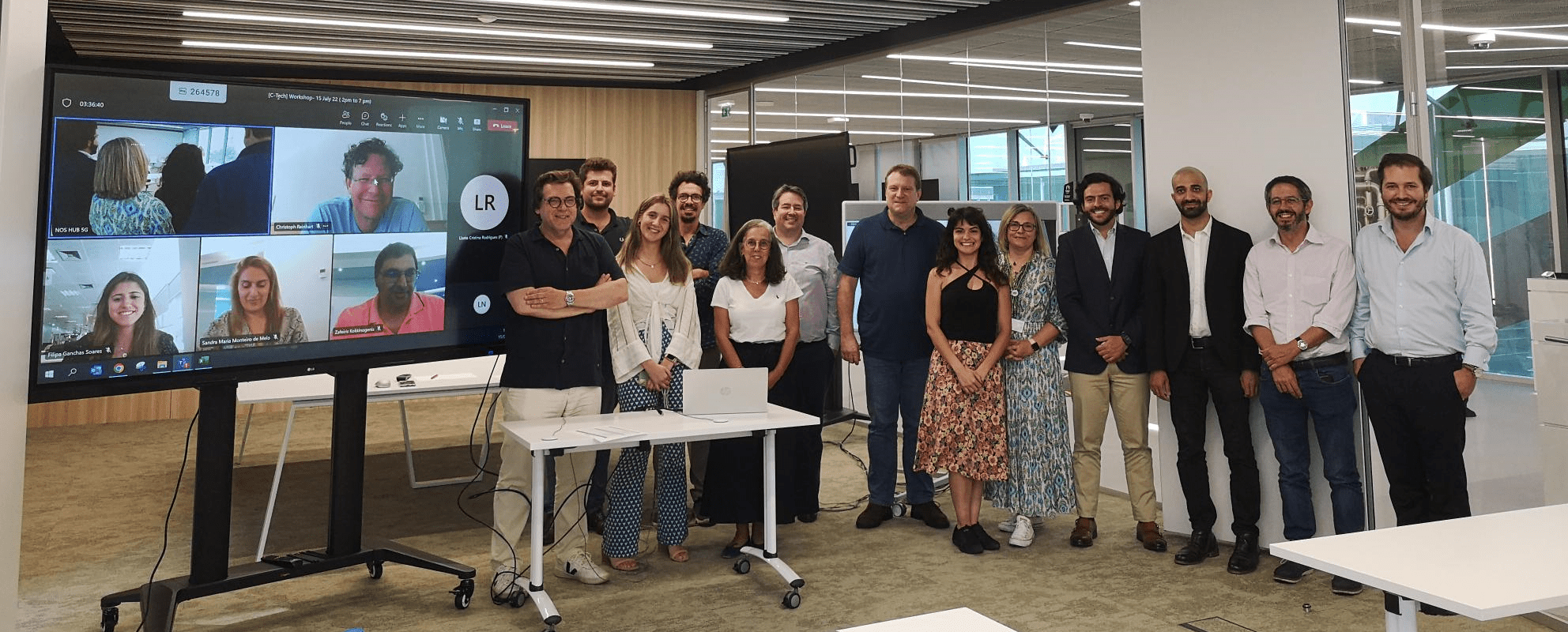
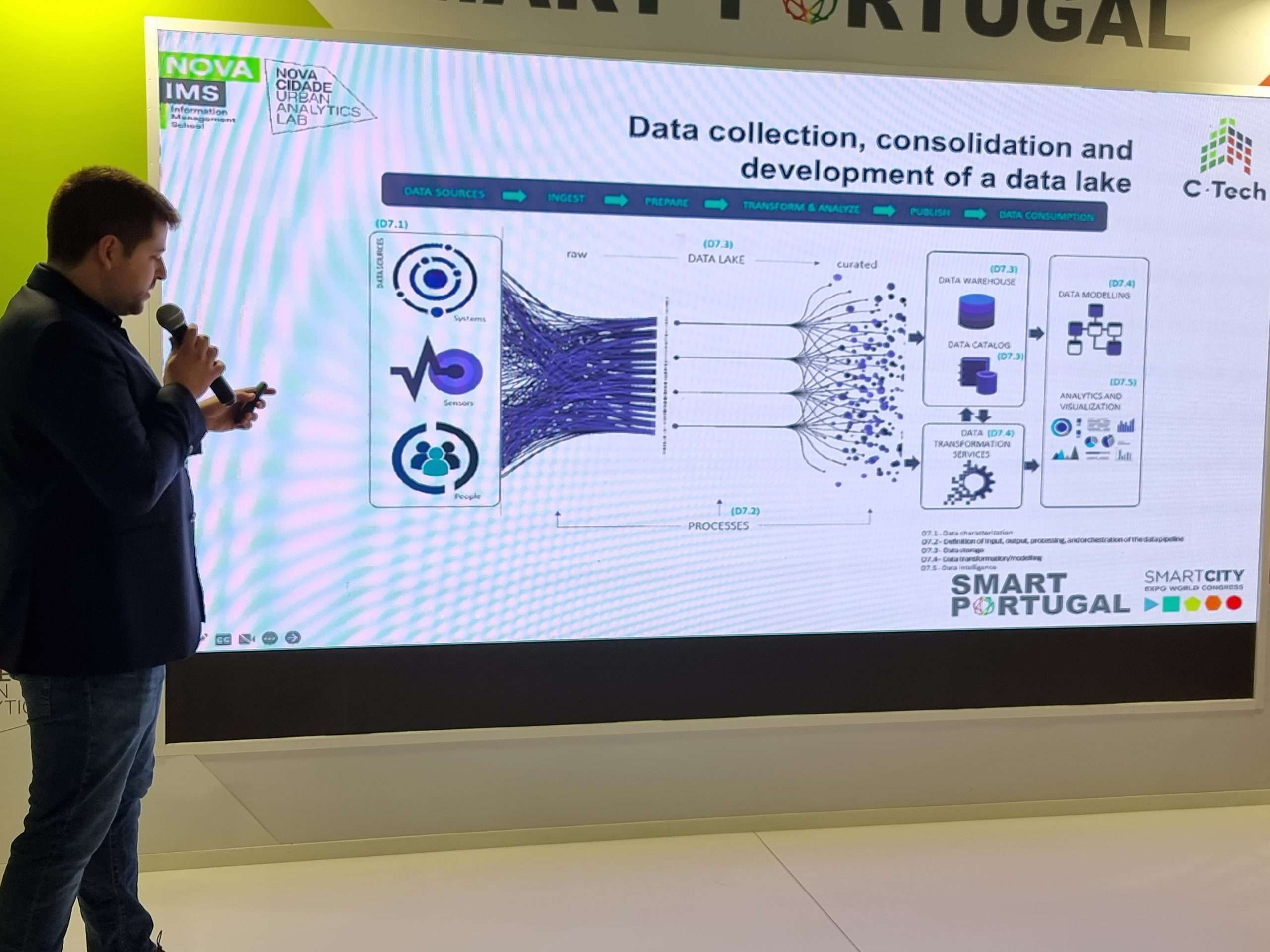
The C-Tech project aims to investigate, develop and validate at a pilot scale a digital platform of smart cities for urban modeling and planning, based on a three-dimensional representation of the city and its combination with several data from different sources (such as climate, energy and water consumption, mobility and above all, user behavior determined by the use of mobile phones), will allow to simulate different scenarios of energy efficiency of buildings, creation of green structures and energy efficiency of urban mobility, empowering local authorities to identify and effectively address specific environmental issues in order to reduce their carbon footprint.
The accomplishment of these objectives is based on the execution of a work plan structured in 9 complementary activities, covering all stages of the product development cycle. The adopted research methodology relates industrial research to experimental development, ensuring continuous validation and integration of feedback.
In line with its complexity and disruption degree, the project is developed by a consortium composed of 5 complementary business and scientific entities, hence covering all critical phases of the value chain. MIT will participate directly in the project, providing the consortium with the specialized knowledge and consolidated experience of two main researchers from two research centers: the MIT Sustainable Design Lab and MIT Trancik Lab.
The Bee2WasteCrypto project aims to develop a differentiating and intuitive IT tool, which, based on high resolution data on waste production, allows Regional Waste Management Entities (RWMUs) to design and manage optimal decentralized solutions for each region, and even promoting more sustainable waste production and sorting behavior.
The project has the following specific objectives:
- Provide RWMUs with the ability to design the best set of technologies to be used in the context of their operation, namely in terms of the quality and quantity of waste generated and the materials to be produced from waste processing, according to environmental and economic criteria;
- Develop an IT system to facilitate Pay-As-You-Throw (PAYT) systems, together with the use of blockchain technologies to produce reliable information that allows for the establishment of “recycling fee credits”, similarly to carbon credits in the energy sector, based on the performance of each RWMU regarding national recycling rate targets;
- A Token, eventually based on a “cryptocurrency”, designed to use Blockchain technologies that pay for sustainable individual behavior when returning waste for recycling or reuse, as well as to promote PAYT solutions.
The project is based on Data Science, with the objective of determining the best combination of technologies that maximize the recovery of waste, through local strategies, but with a global scope.


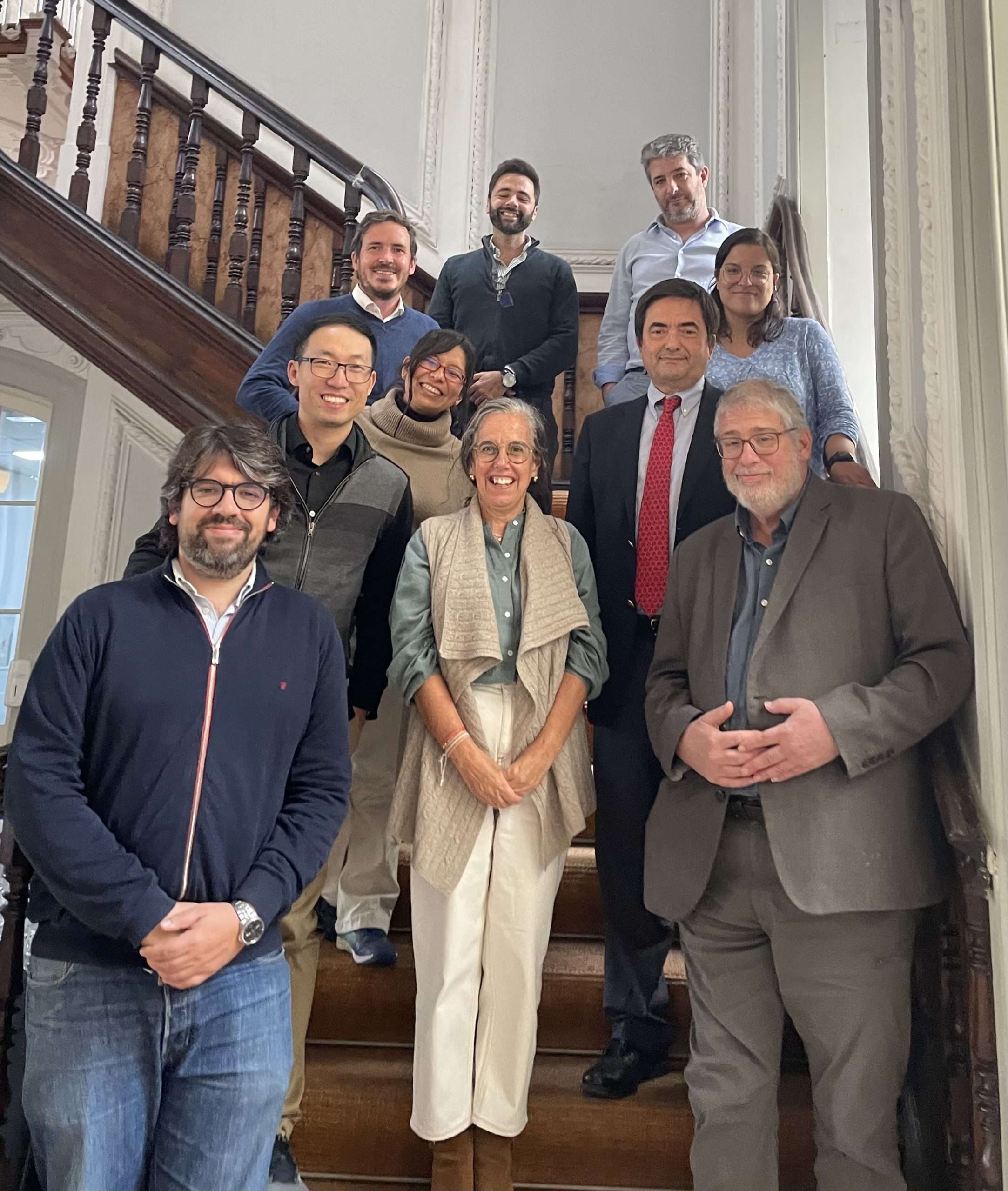
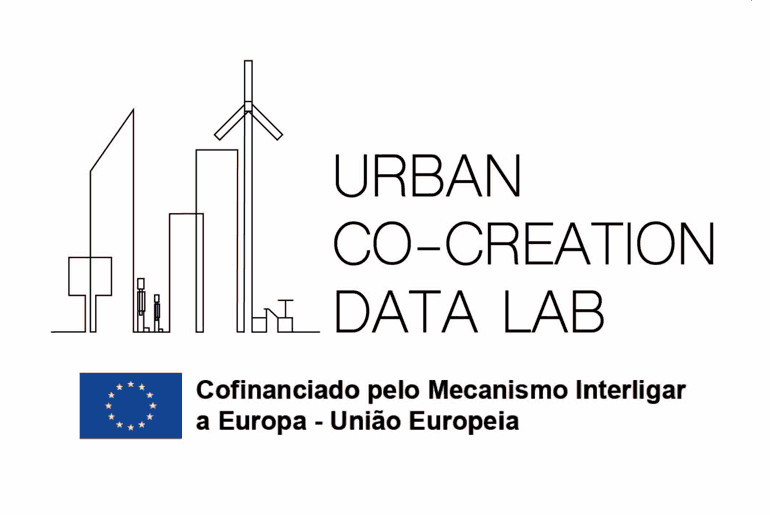
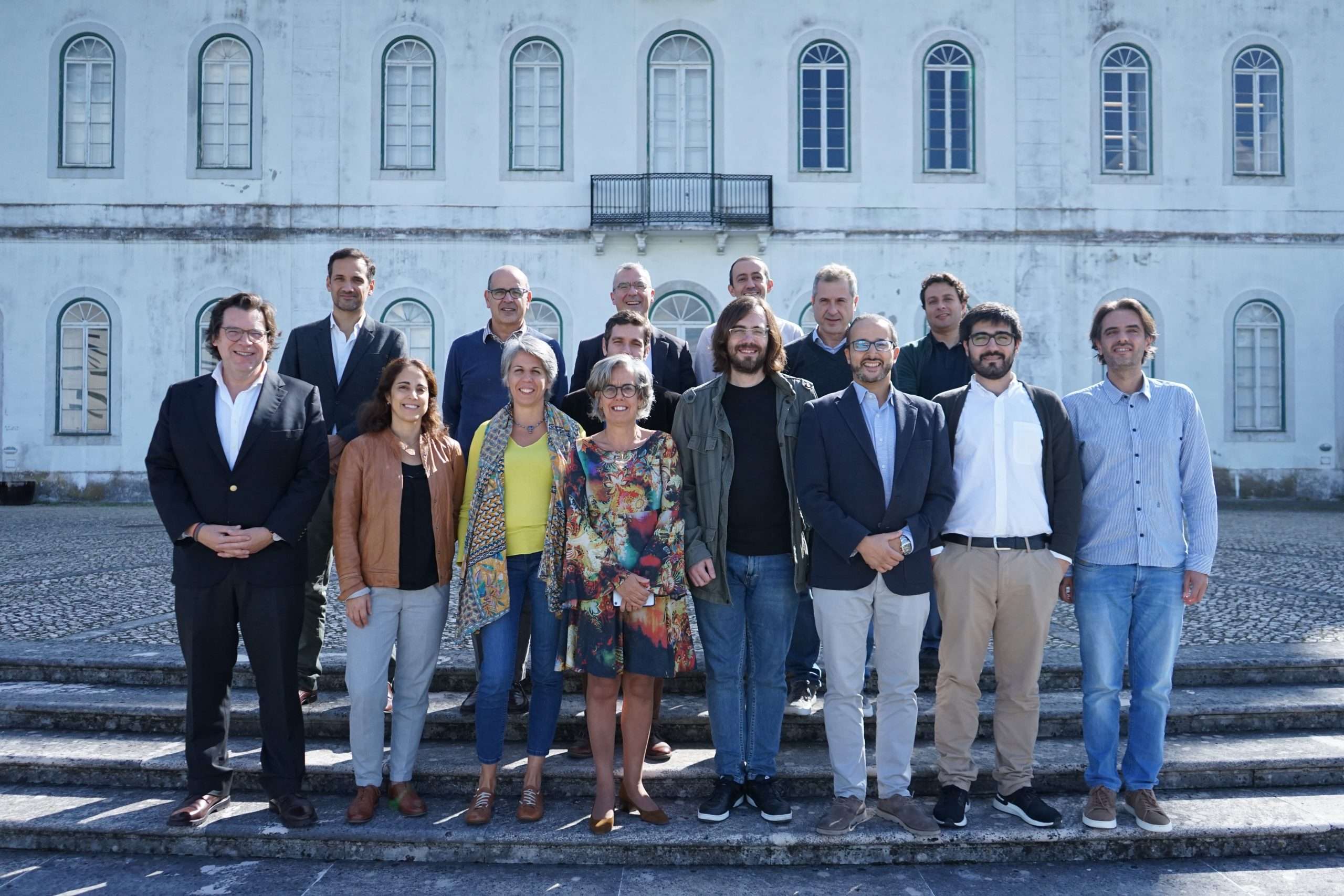

The Connect Europe Facility (CEF) in Telecom is a key instrument of the EU to facilitate cross-border interaction between public administrations, businesses and citizens, through the deployment of digital service infrastructures (DSIs) and broadband networks.
Projects supported by CEF will contribute to the creation of a European ecosystem of interoperable and interconnected digital services that underpin the Digital Single Market.
The main objective of the UCD Lab project is to support decision making within the municipality, in order to provide citizens with high quality services in the areas of security, emergency, operational management and planning.
The Action will implement this support in Lisbon and in two other cities to be defined at the beginning of the Action.
By building analytical capacities and specifically analytical services capable of supporting management, the municipality will be able to better respond to the following challenges:
- Mobility: supporting new planning and management approaches with new tools to assess impact and predict behavior;
- Waste management: identifying patterns to support the prediction of urban waste production associated with a variety of contextual information (eg: events, climate situation, etc.);
- Parking: creating new models to predict or generate viable alternatives to illegal parking in the city;
- Pollution: developing predictive models for the propagation of liquid and atmospheric pollutants;
- Crowd management: building impact forecasting models based on the flow of mobility/people at major events.
Sensing Campolide
The Sensing Campolide Action aims to reconcile the availability of knowledge and technology from academia to leverage an environmental education initiative that challenges the educational community to take advantage of digital transformation, the internet of things, data science and its analytics, to give know the environment and biodiversity of the territory of the parish of Campolide, and through this better knowledge, promote changes in habits and behaviors capable of reducing the ecological footprint of residents, workers and visitors of this territory, with special emphasis on water quality, air and noise.
The Action Sensing Campolide is implemented in the territory, in close collaboration with the parish of Campolide, integrating the following types of activities:
- active public participation, through a crowdsourcing process for gathering information and sensing;
- training, with a multiplying effect and for the dissemination of knowledge;
- environmental awareness;
- passive public participation (exhibition/science fair, teaching materials, digital practical guides, workshops, …).
The population that lives, studies, works or visits the territory of Campolide parish will be the direct beneficiary of this Action, which aims to support the creation of synergies between Campolide community stakeholders in the area of health and well-being in urban areas.
The Sensing Campolide Action arises in the context of the existing cooperation between NOVA Information Management School (NOVA IMS) and Campolide Parish (JFC) and has as partners the League for the Protection of Nature (LPN) and the Professional School of Geographical Sciences (EPCG). The entity proposing the action is the Association for the Development of NOVA IMS (AD NOVA IMS), in consortium with LPN and EPCG.


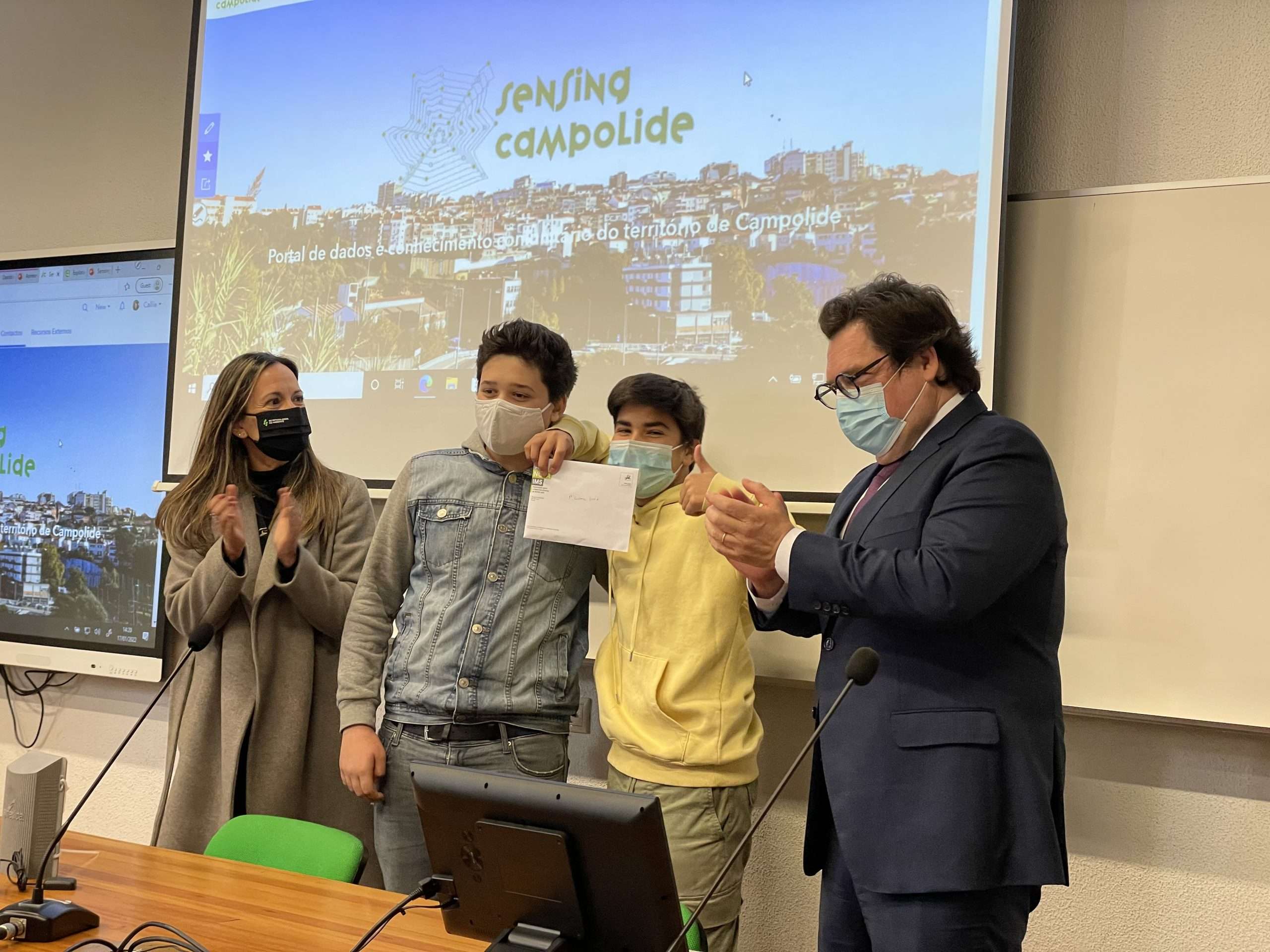
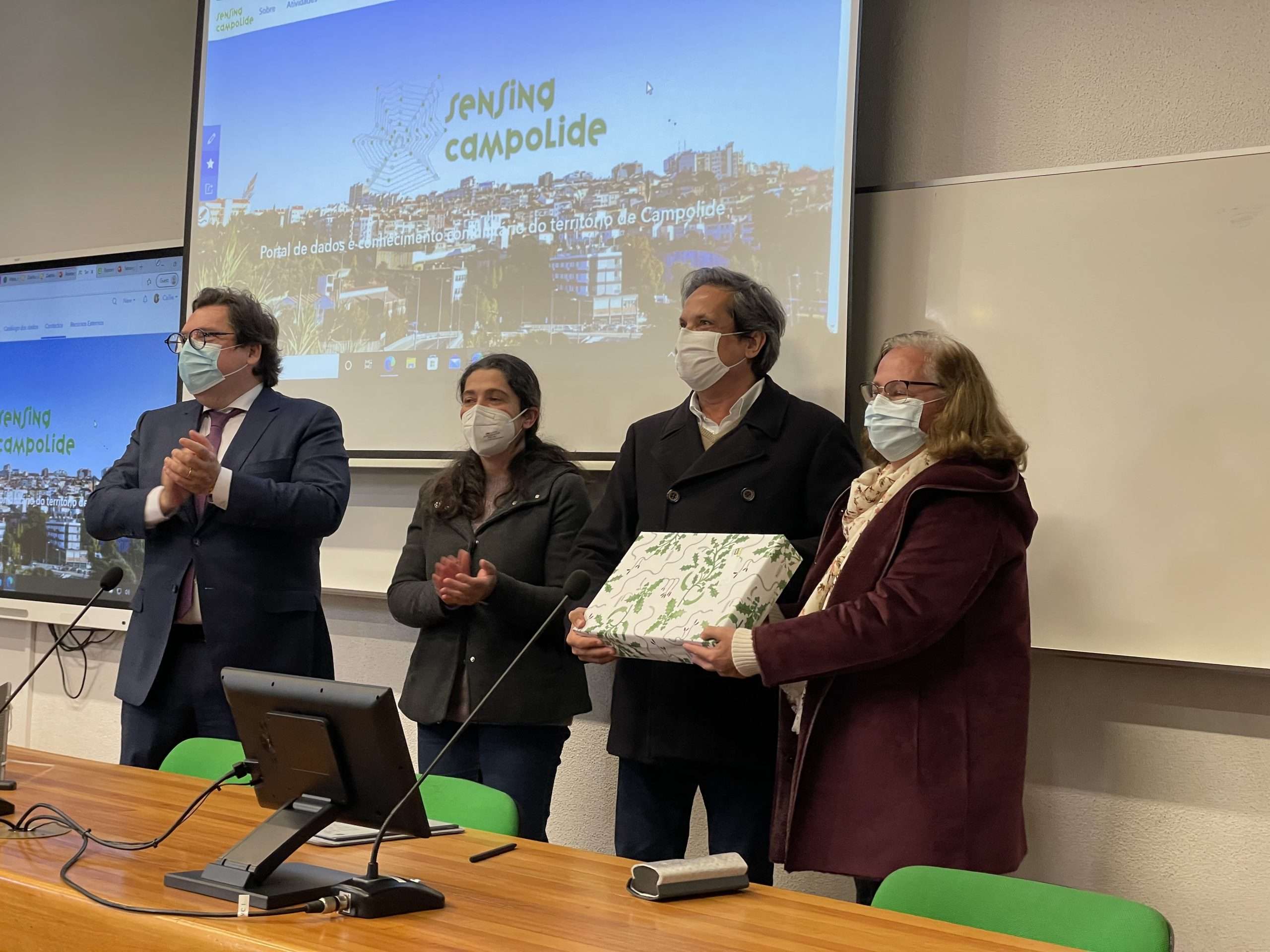
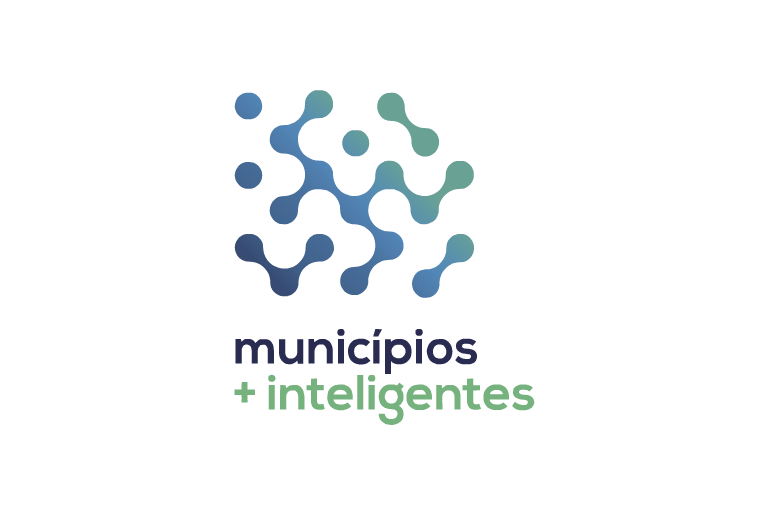
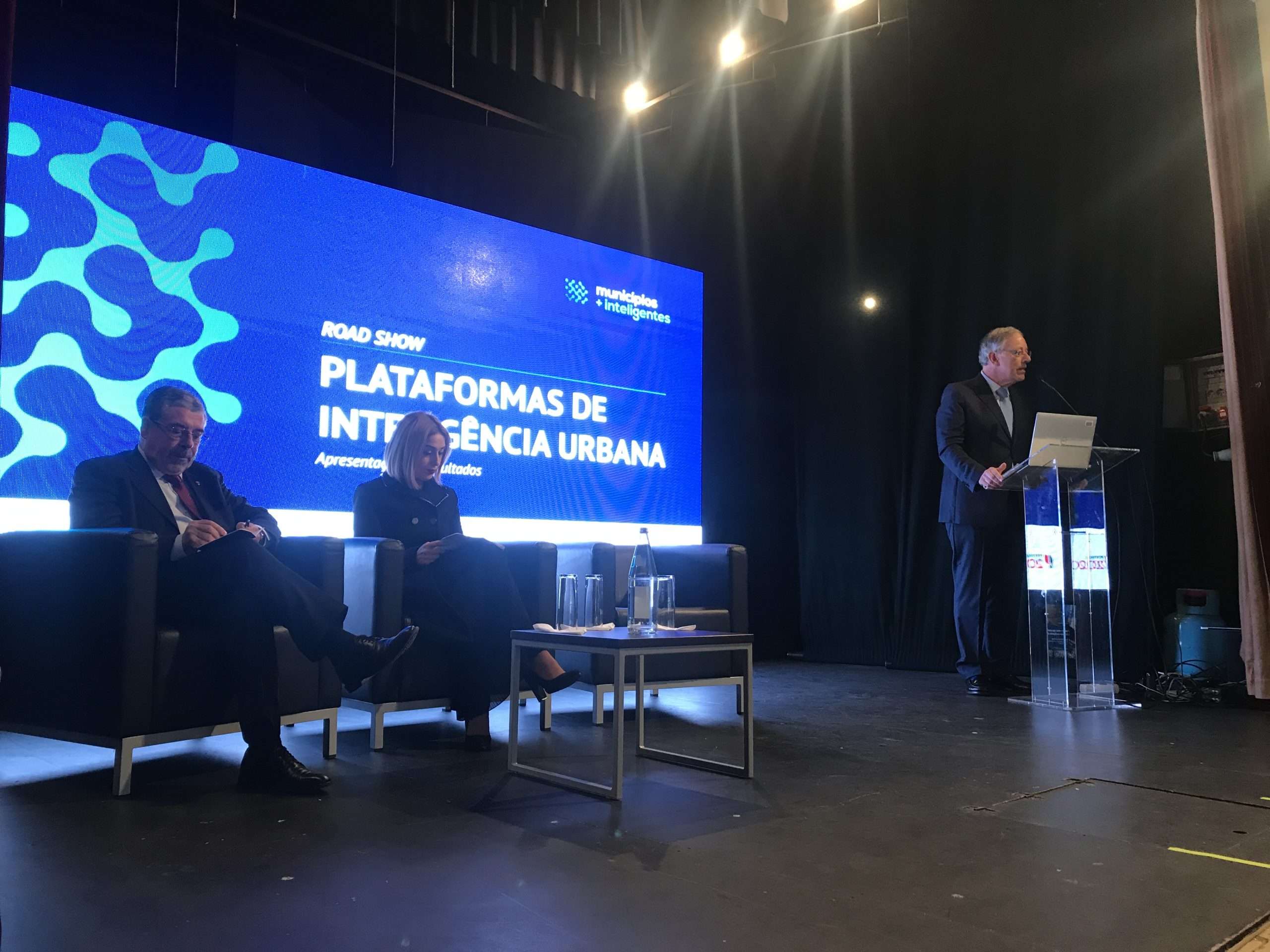
The Municípios + Inteligentes initiative consists of a study of good practices and conditions for building an information management platform (IMP) necessary for the generation of intelligence in the management of the national territory, and subsequently, in order to demonstrate in practical terms the conclusions of the study, a prototype of IMP for demonstration to be developed, supported by analytical models, which enables the integration and treatment of data and fundamental information for the implementation of smart municipal management strategies.
This prototype aims to demonstrate the advantages of their development through the integration of some of the best practices studied, through a demonstration phase for the temporary implementation in 3 municipalities located in regions of convergence in order to test it.
